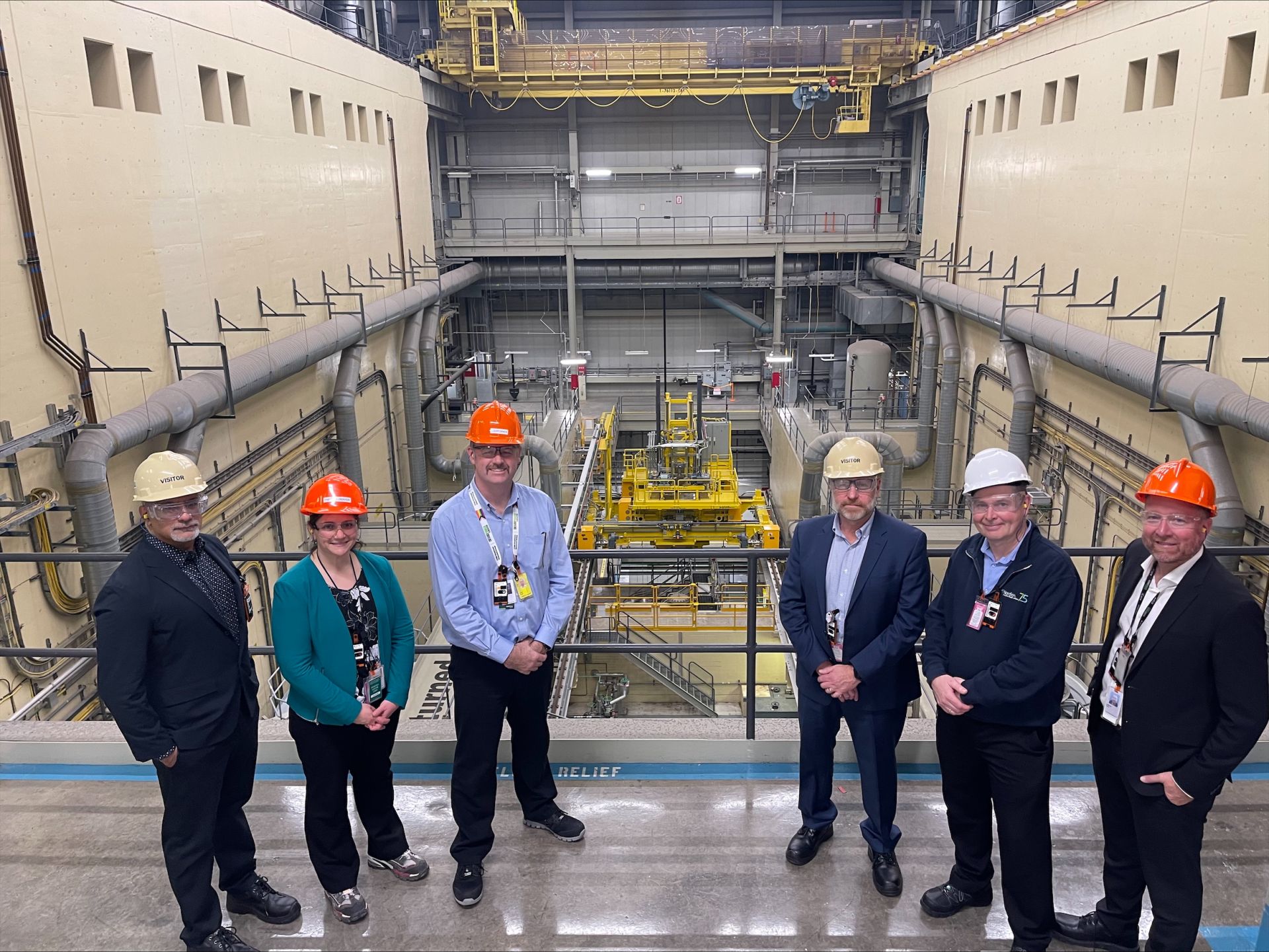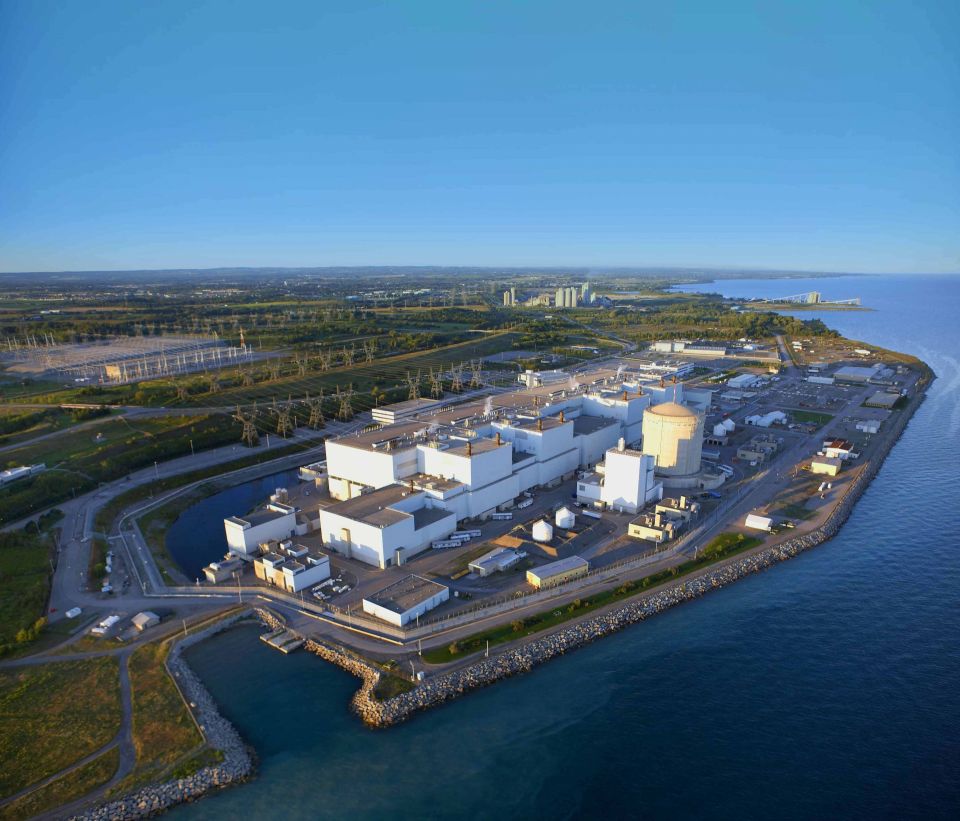OPG and Nordion employees at Darlington’s recently refurbished Unit 1, which has been modified to produce cobalt-60 isotopes. (Photo: OPG)
Ontario Power Generation in Canada announced that Unit 1 of its Darlington nuclear power plant, which has returned to service from refurbishment, is now producing the medical isotope cobalt-60. During refurbishment activities, OPG made modifications to the unit to allow it to produce Co-60, which is used to sterilize 30 percent of the world’s single-use medical devices, such as syringes, gloves, and implants.
The isotope is also used to treat certain foods to rid them of harmful bacteria and insects, providing safety and security for the global supply chain and consumers around the world.
According to OPG, Darlington’s three other units will be similarly modified over the course of the refurbishment of Unit 4, the final unit to be overhauled in the Darlington refurbishment project, as well as during planned maintenance outages on Units 2 and 3.
Co-60 supply chain: After three years of activation in the Unit 1 reactor, Darlington’s new supply of Co-60 will be harvested during a maintenance outage and delivered to Nordion, an Ottawa-based health sciences company, to be packaged and distributed to gamma sterilization facilities around the world.
Currently, about 50 percent of the world’s Co-60 is supplied by Ontario, Canada’s nuclear reactors, with the isotope being first produced in the province in 1971 at OPG’s Pickering plant. According to OPG, Darlington’s new capability will ensure a stable and reliable supply of Co-60 for the world as Pickering ends commercial operation in the coming years and prepares for its potential refurbishment, while also supporting growth in demand.
Other isotopes: OPG, through its subsidiary Laurentis Energy Partners, also currently produces molybdenum-99 isotopes at Darlington’s Unit 2 using a proprietary target delivery system, designed and commissioned in partnership with BWXT Medical, that allows harvesting of the isotope while the reactor is still in operation. Mo-99’s decay product, technetium-99m, is used in more than 40 million medical procedures each year to detect illnesses like cancer and heart disease.
Laurentis soon hopes to use the same system to produce yttrium-90, which has found a wide range of uses in radiation therapy to treat some forms of cancer, OPG has said.










